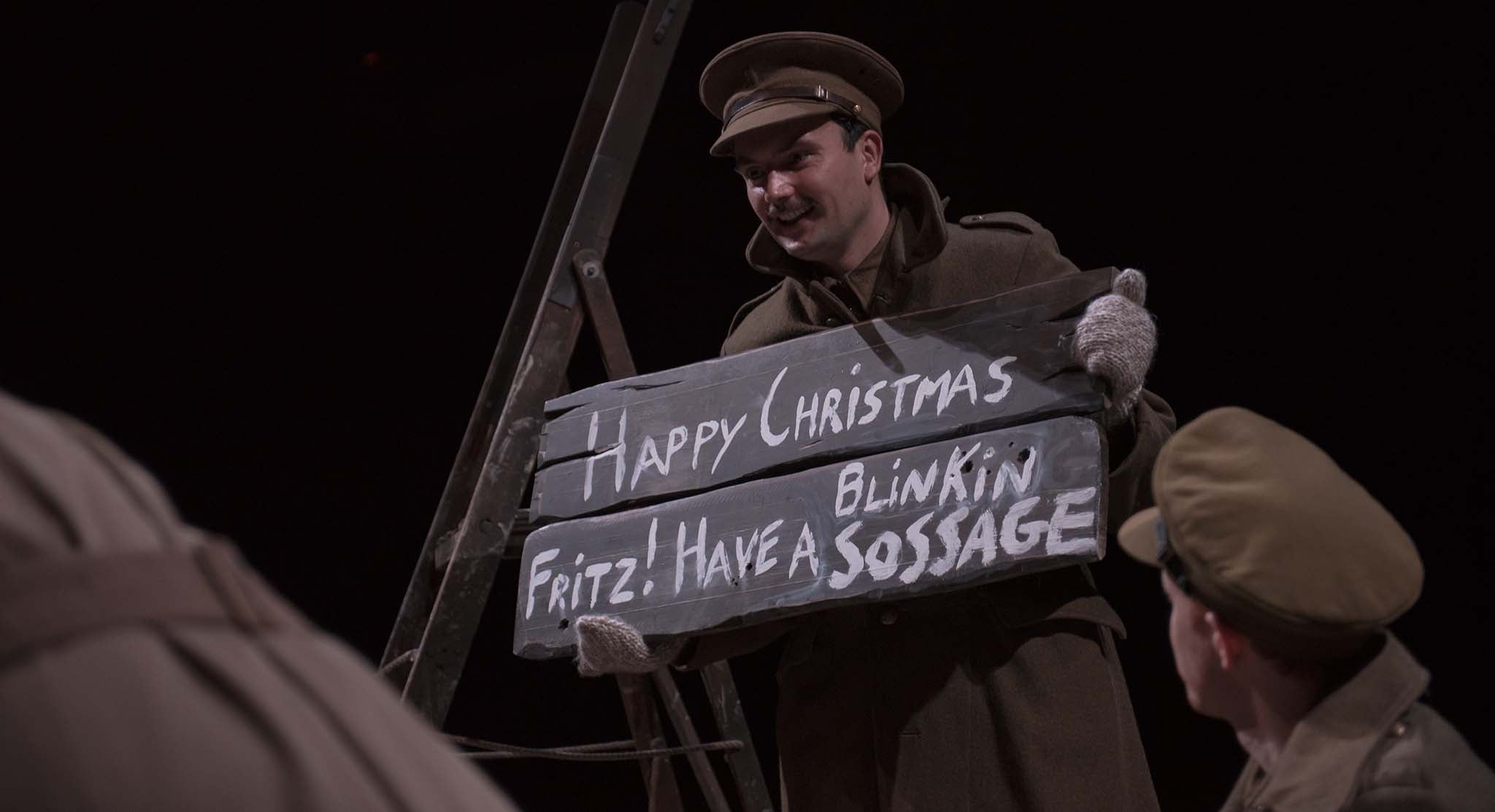The Christmas Truce, review: Unlike the Sainsbury's advert, there is hardship as well as beauty in this tale
Royal Shakespeare Theatre, Stratford-upon-Avon

Your support helps us to tell the story
From reproductive rights to climate change to Big Tech, The Independent is on the ground when the story is developing. Whether it's investigating the financials of Elon Musk's pro-Trump PAC or producing our latest documentary, 'The A Word', which shines a light on the American women fighting for reproductive rights, we know how important it is to parse out the facts from the messaging.
At such a critical moment in US history, we need reporters on the ground. Your donation allows us to keep sending journalists to speak to both sides of the story.
The Independent is trusted by Americans across the entire political spectrum. And unlike many other quality news outlets, we choose not to lock Americans out of our reporting and analysis with paywalls. We believe quality journalism should be available to everyone, paid for by those who can afford it.
Your support makes all the difference.It's not surprising, in this centenary year, that there should now be much commemoration of the Christmas truce, that brief unofficial cessation of hostilities along the Western Front during which German and British soldiers left their trenches and met in no man's land to exchange gifts and seasonal greeting and, in some places, to play a game of football.
You'd never guess from the controversial Sainsbury's ad (“Christmas is for sharing”) that both sides also took the opportunity of the ceasefire to bury their dead (corpses aren't nearly as photogenic as robin redbreasts). But this feature is confronted with great respect and tact in one of the most affecting and imaginative sequences in Eric Whyman's stirring production of Phil Porter's moving, funny and humane play.
The burying is presented to look like a strange ritual of cooperation, as cross-national pairs of soldiers heave up each other's bodies, playing a composite of British and German, living and dead and intone a commentary about limbs gone rigid and frozen eyes wide open that shifts between languages “Ihre and unsere. (Theirs and ours.)” This underscores the theme of common humanity that eventually pervades the piece.
The RSC have programmed Porter's play as their main house Yuletide attraction (this is the slot in which, a few years back, they unveiled their mega-hit Matilda). As dramatic material, trench warfare is not exactly fun-for-all-the-family (I would have thought the show suitable for children of nine upwards) and the risk was that the company would have had to resort to an unacceptable degree of sanitisation to cater for the holiday crowds.
So I'm happy to report that play and production manage to achieve both striking clarity of story-telling and strong conviviality of atmosphere thanks to the humorous camaraderie amongst the men of Warwickshire Regiment and the excellent comedy of their fraternisation with the enemy. It's throat-catching when Gerard Horan's superb, walrus-moustached Old Bill volunteers to be the first to go over and engages in nervous exchanges with a couple of Germans, his mind partly intent on getting a better class of gift from the enemy of than his own proffered tins of bully beef and inedible jam. The droll and the heart-warming keep colliding – as in the football game whose chaotic brio must require considerable discipline to perform.
The main figure is 2nd Lieutenant Bruce Bairnsfather (enchantingly played by Joseph Kloska), an artist and theatre addict who organises the morale-boosting concert party and whose generosity of spirit is a touchstone in the piece. But it takes a lot for him to be persuaded that the ordinary German soldier is “just as good, just as foolish, just as homesick, just as hopeless” as his English counterpart. The play widens its focus to include the heroic work of the nurses in the Clearing Hospital. This strand ends with a truce of sorts between Leah Whitaker's stickler Matron and Frances McNamee's progressive, insubordinate staff nurse Phoebe, just as a command from on high aborts the soldierly truce which here ends in a poignant chorale of carols.
Join our commenting forum
Join thought-provoking conversations, follow other Independent readers and see their replies
Comments